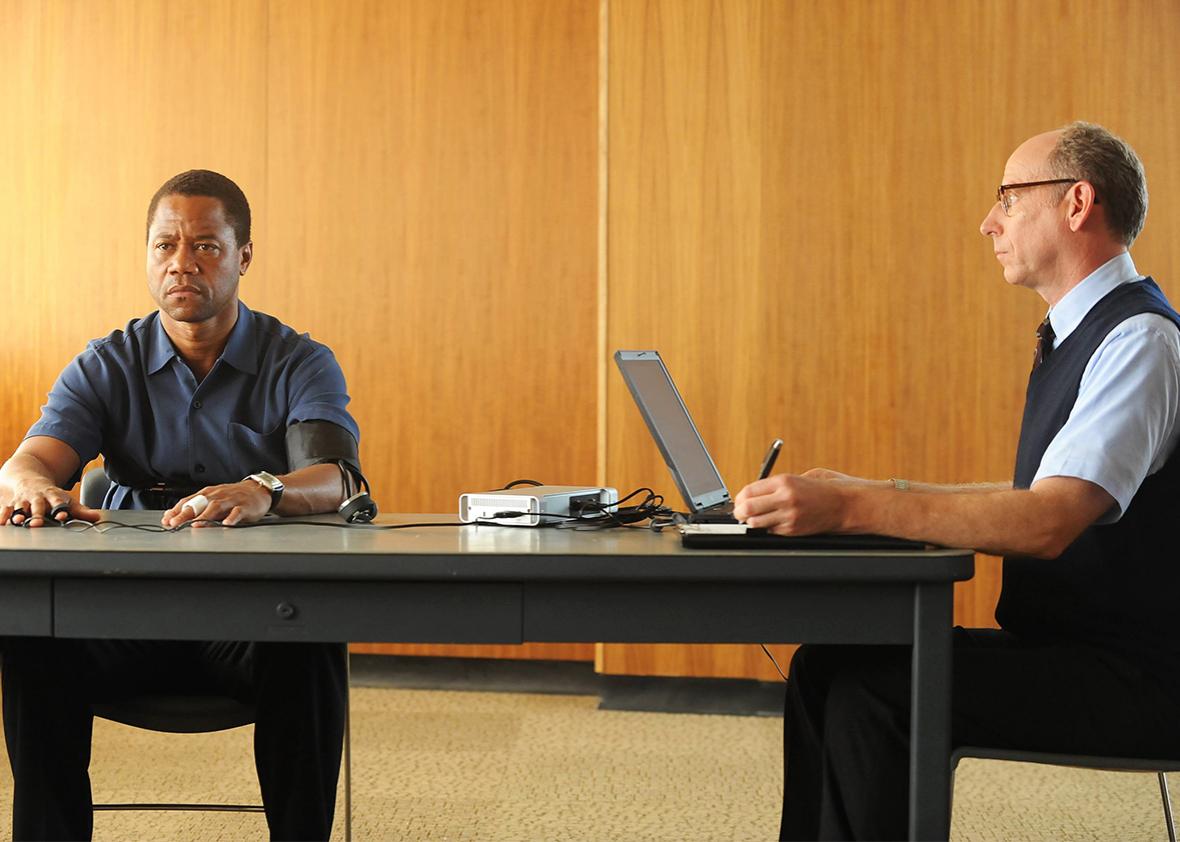The Emmys have become a good test for whether you are a glass-half-full or a glass-half-empty kind of person. With so much television available these days, there is, depending on your perspective, more great stuff than ever for the Emmys to choose from, or more great stuff than ever for the Emmys to ignore. This year’s nominations, announced earlier today, abounded with good taste and blind spots. After years of being ignored, The Americans was finally nominated for Best Drama, and its canoodling lead actors, Matthew Rhys and Keri Russell, the ’ship to end all ’ships, received best actor nods. And yet the Emmys did not bounce aging snoozes like Downton Abbey, Homeland, or House of Cards in order to make room for The Americans but rather the much more vital, if still aging, Orange is the New Black, whose cast was also nearly shut out in the supporting categories. Not everything can be nominated and yet—why can’t everything good be nominated?
When it comes to the Emmys I have been, for years, a glass-half-full kind of person, and this year’s nominations seem to me almost brimming. Joining The Americans as a first time Best Drama contender is the incisive Mr. Robot, whose star Rami Malek adds some fizz to the Best Actor in a Drama category. Thomas Middleditch, who is great as the nervous twitchball at the center of Silicon Valley, was nominated in a Best Actor in a Comedy category that couldn’t be better, except for the inclusion of William H. Macy, the most annoying thing about Shameless. Black-ish’s Tracee Ellis Ross, UnReal’s Constance Zimmer, RuPaul, Laurie Metcalf, Beyoncé the director, and everyone involved with The People v. O.J. Simpson were all rightly recognized, Metcalf three times. I even think that the Emmy voters showed good taste in ignoring the well-done but plodding Show Me a Hero, the brutal Horace and Pete, and Hulu’s troubled-in-Silverlake comedy Casual. (Troubled-in-Silverlake comedy You’re the Worst deserved some love though.)
It is true that for all these good choices, the Emmys ignored the CW’s deserving Crazy Ex-Girlfriend and Jane the Virgin, whose inimitable narrator was at least nominated in the Best Narrator category. It is also true that Broad City wasn’t even in the Emmy conversation. But this is what happens, a little give, a little take; no nomination for Colbert, but none for The Daily Show either. In fact, I feel calm, cool, and collected about almost all of the nominees (Sam Bee, it’s your year next year!), except when I realize that Sophie Turner, the best young actress on Game of Thrones by a dragon’s length, was not nominated, yet Lena Headey, Maisie Williams, and Emilia Clarke were. God damn you, Emmys!
The Emmys still has vestigial fuddy-duddy taste. It holds on to stodgy favorites like Modern Family, House of Cards, Downton Abbey, and Homeland even as it bounces edgier former favorites like Orange, Girls, and American Horror Story. (I don’t think The Good Wife is stodgy, but it got bounced this year too; so did Jim Parsons.) If I had to guess, I would wager that there is a core group of Emmy voters who like what they like no matter what is cool—PBS costume dramas, big-tent network comedies, apparently Bloodline—and a core group of voters who is sampling more widely, watching TV under the influence of cool, without being slaves to it. I’m sure these groups have overlapping taste, but this dynamic would explain both the Emmy’s loyalty and its daring and should give hope to Crazy Ex-Girlfriend: if you can become the Tatiana Maslany or The Americans of the future—i.e., the thing people point to when discussing the Emmys idiocy—you have a pretty good chance of one day getting an Emmy.
The Emmys make an interesting counterpoint to the Motion Picture Academy, which has lately been embroiled in a controversy about how old and white it is, and thus, how staid in its taste. For a few years now, the Emmys have been much fleeter of foot, slowly but surely moving away from reflexively nominating bland network fare to nominating that which is vibrant, excellent, and, often, diverse—alongside some bland not-necessarily-network fare. There is no surefire “Emmy bait,” except that which has the feel of a phenomenon (Making a Murderer, Game of Thrones, The People v. O.J. Simpson), and as long as this is true, every Emmy nomination day should be as nicely eclectic as this one.
